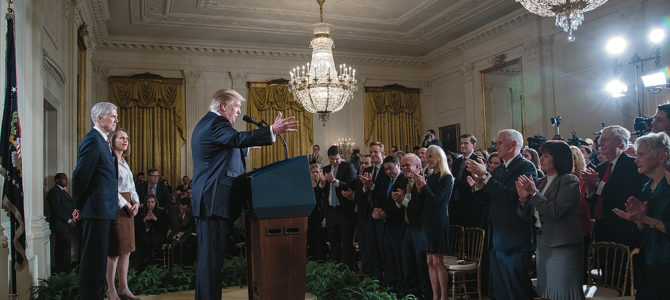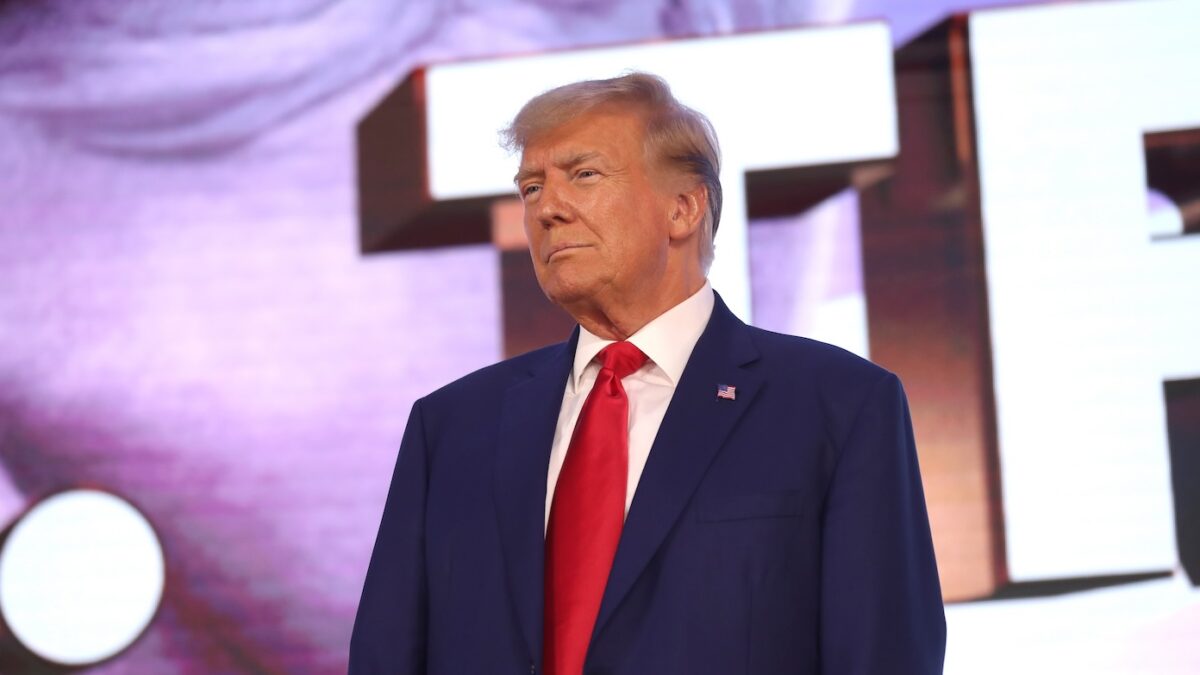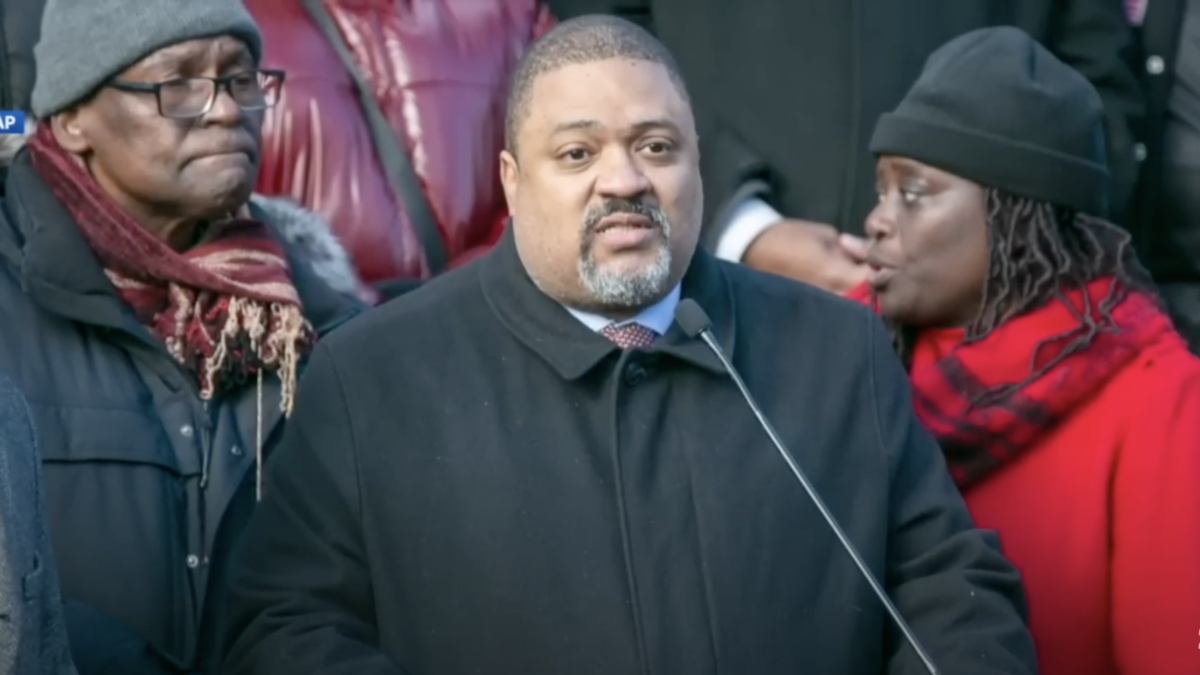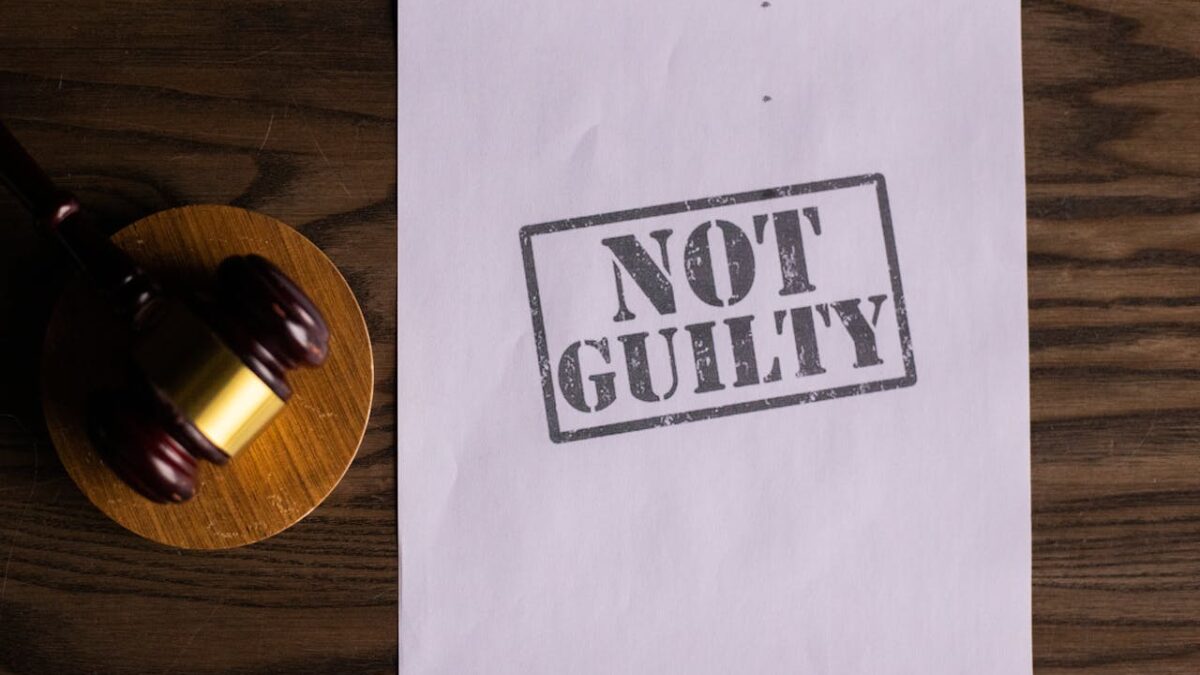
Whatever’s happening with James Comey’s testimony, Donald Trump’s Twitter account, or congressional inaction on Obamacare repeal, tax reform, or much of anything else, from where I stand all that is fake news designed to distract your eyes from the prize: we have more judicial nominees!
This week, in an echo of how the 21 contenders for the Supreme Court vacancy were rolled out during the presidential campaign, 11 would-be black-robers join last month’s stellar list of 10 lower-court nominees. They join the one confirmed nominee, Sixth Circuit Judge Amul Thapar, who was elevated from a Kentucky district court after having been on that list of Supreme Court potentials.
Case Western law professor Jonathan Adler, who appeared with me on a panel at Cato’s 40th anniversary celebration right before the May 8 announcement, says they’re “‘incredibly strong nominees’ who were within the judicial mainstream and should ‘have an intellectual influence on their courts.’” As they say in Congress, I wish to associate myself with that analysis—and to extend those remarks to apply to all the nominees we’ve seen thus far.
Let’s Take a Look
In that first batch are two state justices who were on the potential Supreme Court list, Michigan’s Joan Larsen (nominated to the Sixth Circuit) and Minnesota’s David Stras (nominated to the Eighth Circuit). These are engaged and scholarly jurists—both former law professors who still teach on the side—who will make terrific circuit judges.
Eleventh Circuit nominee Kevin Newsom, a former Alabama solicitor general who hosted me when I spoke to the Birmingham Federalist Society chapter earlier this year, is a serious lawyer and public servant who will serve the nation well even if I disagree some with his interpretation of the Slaughterhouse cases.
Pacific Legal Foundation’s Damien Schiff, with whom I’ve worked on many cases, is an inspired pick for the Court of Federal Claims, an Article I court that mainly handles government-contract disputes and property-rights claims against the government. Throughout his career, Damien has shown a commitment to protecting individual rights against government overreach.
This week’s second batch brought us three more circuit court nominees, including Justice Allison Eid of the Colorado Supreme Court to fill Neil Gorsuch’s vacant Tenth Circuit seat and professor Stephanos Bibas of the University of Pennsylvania Law School for the Third Circuit. I know Eid by reputation. A former clerk for Supreme Court Justice Clarence Thomas, she’s a thoughtful and intellectual jurist much in the mold of her former boss. Bibas is one of the top criminal-law scholars in the country. I’ve worked with him professionally and had drinks personally; he’ll be outstanding but leaves a gaping hole as faculty adviser for Penn’s Federalist Society chapter.
Then there’s Stephen Schwartz, an old friend who was a few years behind me at the University of Chicago Law School and has also been nominated to the U.S. Court of Federal Claims. Stephen has the perfect blend of nerdiness and skepticism of federal power that the job demands.
I’ll Never Tire of This Kind of Winning
If the other eight announced June 7 are of the same caliber as these three (and the previous 10)—and we have no reason to think otherwise given that the administration’s nominations staff is the same—then this is the sort of #winning of which I won’t ever tire.
The only curiosity is the continued absence of Justice Don Willett of the Texas Supreme Court—and indeed no nominees to the Fifth Circuit at all. As Hugh Hewitt tweeted, of the 11 original SCOTUS short-listers, five were state judges. Three have now been nominated to the federal appellate courts. The two remaining are Tom Lee of Utah (which has no current vacancies) and Willett (and Texas has two vacancies). Moreover, Willett was apparently one of the five or six finalists for the seat that Gorsuch filled, and is close to Texas Sen. Ted Cruz. So you’d think he’d be a shoo-in.
Now, it’s certainly possible there’ll be some grand bargain whereby two other worthies get the Fifth Circuit slots but Willett goes to the high court whenever Justice Anthony Kennedy decides to retire. But that’s pie-in-the-sky because so many other stakeholders are involved at that point. Of course, if this deal—a fabulous deal, believe me!—is ratified by the president himself, that would be bigly indeed.
In the meantime, the White House counsel’s office should just keep these black-robe orders coming. Their work, and that of the Federalist Society’s Leonard Leo, has allowed President Trump—regardless of what else he does with his time—to continue fulfilling what was probably his most important campaign promise: to appoint “the best” judges.









